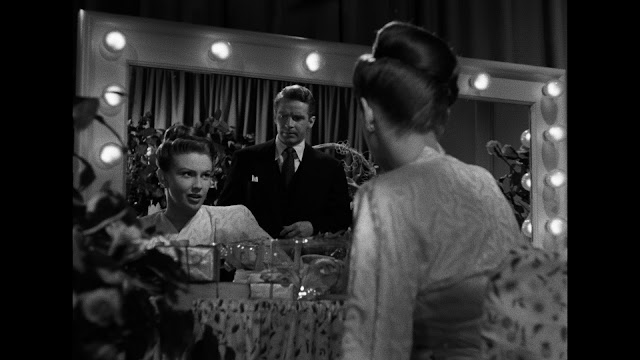Hollywood Tiki
Film in the Era of the Pineapple Cocktail
by Adam Foshko and Jason Henderson
The History Press
Paperback ISBN: 9781467149907
208 pages
August 2022
“Tiki Culture was never about a real place but about the escape to imaginary places—not real Hawaii, but an idea of Hawaii; not any real island, but the idea of an island. A perfect idyllic getaway that was an escape from an industrial postwar life that was the opposite of that.”
A follow-up to their 2018 book California Tiki: A History of Polynesian Idols, Pineapple Cocktails and Coconut Palm Trees, authors Adam Foshko and Jason Henderson's new book explores Tiki culture in film and how this brand of escapism was born out of the trauma of WWII.
Hollywood Tiki: Film in the Era of the Pineapple Cocktail is both a viewing guide for a subgenre of classic movies as well as a cultural history book that extrapolates meaning and context for each of the movies highlighted.
The book begins with two lengthy introductions in which the authors explain their goals in writing this book as well as a background on Tiki cinema. The rest of the book is divided into four chapters:
- Tiki Goes to War: South Pacific and the World II Experience
- Cocktail Tiki: Bob Hope and Backyard Luau (Sophisticated Adult TIki Entertainment)
- Escape to the Islands
- I Was a Teenage Tiki: Gidget and the World of Beach Parties
Each chapter highlights 10-12 different movies that fit within the theme. A cast and crew list and a movie poster is accompanied by 3 pages of text which include background, a movie summary (there are spoilers!) and an examination on how the movie fits within the theme of Tiki Cinema and within its era. The individual movies feature a black-and-white poster. Some of these are revisited in the book's full-color insert.
Tiki Cinema is about escapism. It's about rejecting modernity, dealing with the trauma of war and embracing the "idyllic fantasy" of the exotic. Not all of the films fit perfectly into this subgenre and the authors take the time to explain how each of the selected movies touches upon some aspect of Tiki culture.
Here are some of my favorite takeaways from the book:
South Pacific (1958) — “South Pacific does a wonderful job of expressing the idea that the Pacific theater was marked with moments of terrifying brutality separated by long periods of bucolic beauty.”
Miss Sadie Thompson (1953) — “The prevailing lesson of the film and one that is completely at home in Tiki culture: a brazen insistence that trauma can be sublimated into joy.”
Mysterious Island (1961) — “Like Tiki aficionados looking to escape, Nemo detests civilization and all of the ills that its modernity has brought. Especially war.”'
His Majesty O’Keefe (1954) — “A man is set to drift—very likely to die— but instead, he washes ashore on an exotic paradise. He is a ‘civilized’ in a different world and must therefore overcome the island, the elements, the natives and then ultimately himself in order to be ‘saved’—and then allowed to stay.”
Pagan Love Song (1950) — “Tahiti is the real star here. It’s one of the few pictures… from this period and in this category that really showcases the Polynesian scene”
From Here to Eternity (1953) — “What the film seems to be saying is that, despite all the jingoism in American culture, military surroundings and military duty will not clear a person of his weaknesses or his choices. The characters in the movie make decisions that condemn themselves, but they are ultimately victims of the vagaries of life.”
Gidget (1959) — “It is riddled with not just the culture of Tiki, exotica, and escape but a constant conversation about what it is to find and explore, to leave and return to one’s responsibilities.”
Ghost in the Invisible Bikini (1966) — “It was a strange time for movies and for Tiki themes. It wasn’t just that the ideas were tired (they often were), but the audiences were changing.”
Other notable movies include:
Song of the Islands (1942), Mister Roberts (1955), Father Goose (1964), Bachelor in Paradise (1961), Blue Hawaii (1961), Beach Party (1963) (and the other Frankie and Annette movies), Where the Boys Are (1960) and others.
Hollywood Tiki has a lot to offer classic movie fans especially those who love movies with exotic settings or the beach movies of the 1960s. There is much to learn here about how Tiki cinema really spoke to audiences who were dealing with the aftermath of war and the changing times.
When I first saw this book, I immediately thought of my good friend Erin who is both a classic movie fan and a Tiki enthusiast. This book would be perfect for her!
I did have a few issues with the book. I didn't think that they made good use of the four color insert especially since it was just repeats of posters that were already presented. It would have been better used for publicity stills or some other type of image. Anyone seeing the book title and cover at first glance will think this is a lighthearted read which it's not. And there is not a cocktail recipe or even really any discussion of cocktails anywhere in the book which makes the reference in the book's subtitle a bit misleading. The movies within each chapter are not presented chronologically. They don't need to be but if you're a stickler for that kind of thing it may rub you the wrong way. Otherwise the book is very well laid out and the information is quite through.
This is my fourth book review for this year's Classic Film Reading Challenge.
Thank you to The History Press for sending me a copy of Hollywood Tiki for review.



.png)



.png)










